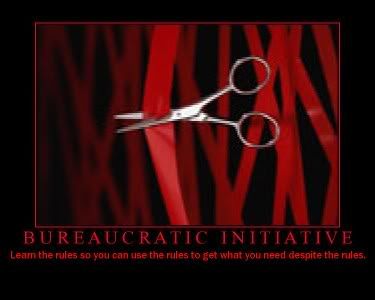Saturday, June 24, 2006
The Washington Post had another live chat with Daniel H. Wilson, who wrote How to Survive a Robot Uprising. My favorite question response: When someone asked if regulatory limits should be put on robotics research, he said (in part) "This is an absolutely terrible idea. Robots are machines designed to help people. Fact: Most robots are designed to teach children, keep the elderly healthy, and protect puppies and kitties from innovation-stifling people like you."
Feeling Lonely? You're Not Alone
A new study shows that people in the United States are feeling more socially isolated than ever. We have more ways to connect with one another than ever before, but the connections we do make are not as deep as we sometimes need them to be. I've already talked about how even the most innocent, otherwise beneficial technology can negatively affect human social interaction. We need the casual, unplanned interaction that comes naturally in the physical space to build connections with our family, friends, and neighbors. When you run into someone in the hall or at the grocery store, a simple "hello" can reinforce an existing connection and make it stronger. This takes relatively little effort. Most technological communication requires you to conjure the memory of a person without the external visual cue of their appearance and requires that you have a certain level of knowledge about that person, thus reducing the chances that you'll make a connection with someone you don't already have a relatively strong connection to (I don't have that guy's number. I don't even know his last name! Connection lost...) Those little things build up over time. Little connections become bigger connections and sometimes deeper connections. Those little things are small enough that we don't know to miss them, but we miss the connections that could have been.
Another thing affecting how we make connections is the distance between work and home. Yes, more commute time means less time for other things. But it also pulls you out of the community. Is your doctor's office near work, near home, or somewhere in between? Do you grab dinner after work near work, near home, or somewhere in between? If everything were close together, you might start to see the same people all of those places after a while, reinforcing those connections. But if you live in Maryland, work in VA, and dine in D.C. after work, what are the chances you'll run into the same groups of people in each of those locations? Not that moving beyond your comfort zone to do new things and meet new people isn't good, but having a comfort zone where people really know you is kind of nice.
Related post: Community and Communication
Another thing affecting how we make connections is the distance between work and home. Yes, more commute time means less time for other things. But it also pulls you out of the community. Is your doctor's office near work, near home, or somewhere in between? Do you grab dinner after work near work, near home, or somewhere in between? If everything were close together, you might start to see the same people all of those places after a while, reinforcing those connections. But if you live in Maryland, work in VA, and dine in D.C. after work, what are the chances you'll run into the same groups of people in each of those locations? Not that moving beyond your comfort zone to do new things and meet new people isn't good, but having a comfort zone where people really know you is kind of nice.
Related post: Community and Communication
Friday, June 23, 2006
The Daily Show Effect
From the Washington Post:
"Two political scientists found that young people who watch Stewart's faux news program, "The Daily Show," develop cynical views about politics and politicians that could lead them to just say no to voting....
Um, did they consider that maybe those that watch the Daily Show might not otherwise be interested in politics and at least the Daily Show gets them thinking about these things? Maybe CBS news coverage left them less cynical, but raise your hand if you watch CBS News of your own volition. Anyone? Anyone? Bueller? CBS News can't inform you if you don't watch it.
The article also said that "previous research found that nearly half -- 48 percent -- of this age group watched "The Daily Show" and only 23 percent of show viewers followed "hard news" programs closely." I don't follow hard news programs. I get my news online. That doesn't mean I don't get hard news. It means I don't get hard news from TV.
This report has left me cynical and distrustful of the news media. It is an enemy of democracy and must be destroyed!
"Two political scientists found that young people who watch Stewart's faux news program, "The Daily Show," develop cynical views about politics and politicians that could lead them to just say no to voting....
"To test for a "Daily Effect," Baumgartner and Morris showed video clips of coverage of the 2004 presidential candidates to one group of college students and campaign coverage from "The CBS Evening News" to another group. Then they measured the students' attitudes toward politics, President Bush and the Democratic presidential nominee, Sen. John F. Kerry (Mass.).
"The results showed that the participants rated both candidates more negatively after watching Stewart's program. Participants also expressed less trust in the electoral system and more cynical views of the news media..."Um, did they consider that maybe those that watch the Daily Show might not otherwise be interested in politics and at least the Daily Show gets them thinking about these things? Maybe CBS news coverage left them less cynical, but raise your hand if you watch CBS News of your own volition. Anyone? Anyone? Bueller? CBS News can't inform you if you don't watch it.
The article also said that "previous research found that nearly half -- 48 percent -- of this age group watched "The Daily Show" and only 23 percent of show viewers followed "hard news" programs closely." I don't follow hard news programs. I get my news online. That doesn't mean I don't get hard news. It means I don't get hard news from TV.
This report has left me cynical and distrustful of the news media. It is an enemy of democracy and must be destroyed!
Wednesday, June 21, 2006
Quote of the Day - June 21, 2006
[W]hat kind of head of Security would I be if I let people like me know things that I'm not supposed to know. [I mean,] I know what I know because I have to know it, and if I don't have to know it, I don't tell me, and I don't let anyone else tell me, either.
- Garibaldi, Babylon 5
- Garibaldi, Babylon 5
Tuesday, June 20, 2006
Quote of the Day - June 20, 2006
Ivanova is always right. I will listen to Ivanova. I will not ignore Ivanova's reccommendations. Ivanova is God. And if this ever happens again, Ivanova will personally rip your lungs out!
- Susan Ivanova, Bablyon 5
Monday, June 19, 2006
More Motivation
Bureaucracy must be defeated!

Oh, no! What's this below? Did I make an actual motivational poster? Where's the humor?

Oh, there's the humor.


Oh, no! What's this below? Did I make an actual motivational poster? Where's the humor?

Oh, there's the humor.

Popping Journalism's Bubble
Jay Rosen writes at washingtonpost.com today about how the internet has changed the nature of journalism. (wait, does that sentence make me a journalist?) He doesn't address something that I think is a very important factor in all of this. Journalists are information experts - they know how to collect it and they have the means to distribute it. But they tend not to be experts in the information that they distribute. This is an increasing problem in the 24-hours news business. It used to be that journalists spent more time collecting information than distributing it. This gave them the opportunity to understand the information they were distributing - to become, if not an expert, at least an informed interested party. With the dawn of 24-hour news, journalists spend more time distributing information than acquiring it. Everyone wants to get the word out first, so they don't take the time to digest it.
The Internet has taken this lazy approach to journalism and kicked it in the gut. Now average citizens become information gatherers with a few key strokes. Those who are experts on the information have a way to tell the world the journalists are getting it wrong. Witnesses can tell their own story directly, without the journalistic middleman. Journalists are suddenly privy to the dinner-table conversations about their work. And they can join in. It's freaking them out a little. But, for the most part, I'd say that's a good thing.
The Internet has taken this lazy approach to journalism and kicked it in the gut. Now average citizens become information gatherers with a few key strokes. Those who are experts on the information have a way to tell the world the journalists are getting it wrong. Witnesses can tell their own story directly, without the journalistic middleman. Journalists are suddenly privy to the dinner-table conversations about their work. And they can join in. It's freaking them out a little. But, for the most part, I'd say that's a good thing.
Quote of the Day - June 19, 2006
Michael Garibaldi: No boom?Jeffrey Sinclair: No boom. Susan Ivanova: No boom today. Boom tomorrow. There's always a boom tomorrow. [Sinclair and Garibaldi exchange an exasperated look and wander off.] Susan Ivanova: What?! Look, somebody's got to have some damn perspective around here. Boom. Sooner or later. BOOM!
- Babylon5, "Grail"


